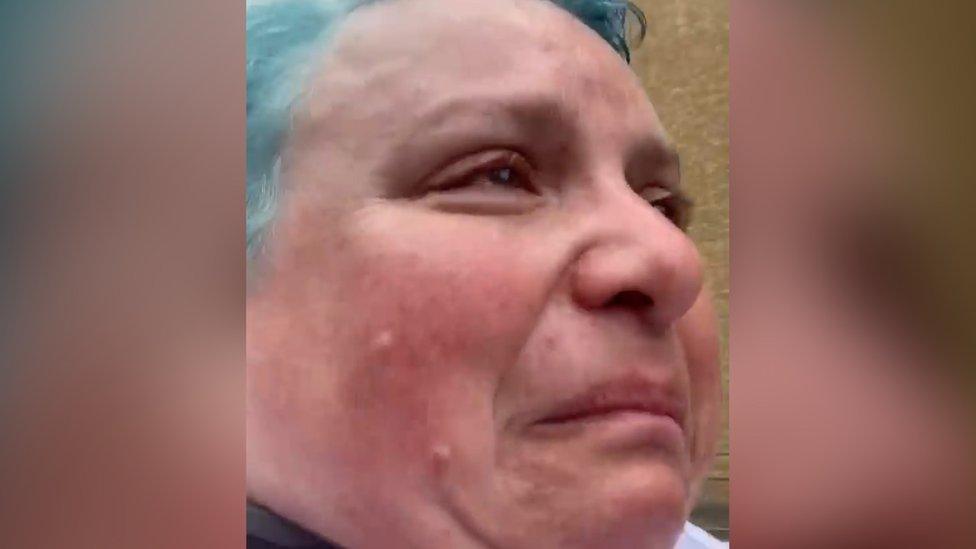The London Marathon runners proud to be last
- Published
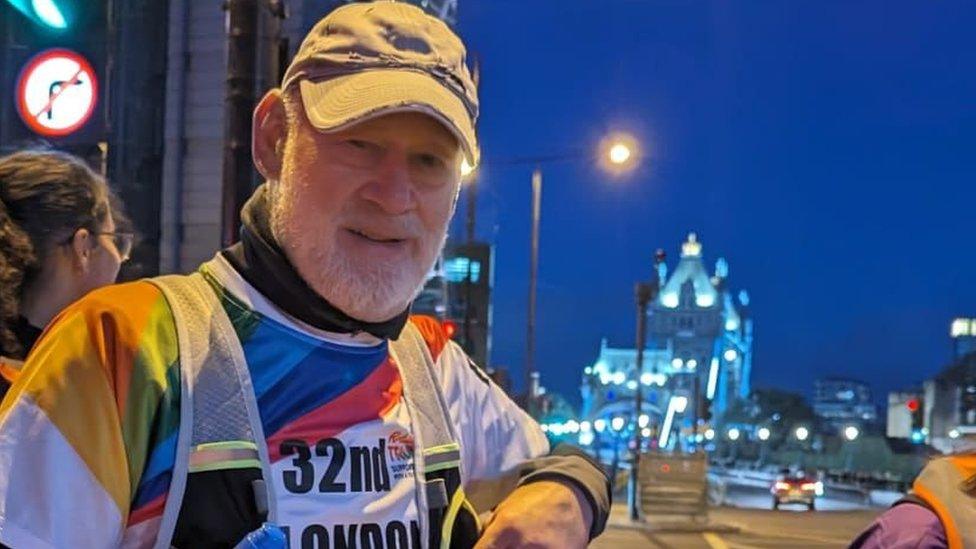
Fred Tomlinson came last at the London Marathon, which took him over 13 hours to complete
About 50 people completed the London Marathon after the finish line on The Mall was packed away. But they still got their all-important medals, after crossing the line at an alternative finish. What was their experience and how much support is there now for the back of the pack?
Fred Tomlinson says Sunday's London Marathon, his 32nd in a row, was his best one yet, despite the fact he came last and crossed the line on Monday.
The 75-year-old, from Doncaster, who had a knee injury, took over 13 hours and finished the race just after midnight.
He was supported by a team of about half a dozen tailwalkers, who volunteer with the back of the pack, who he described as "incredible".
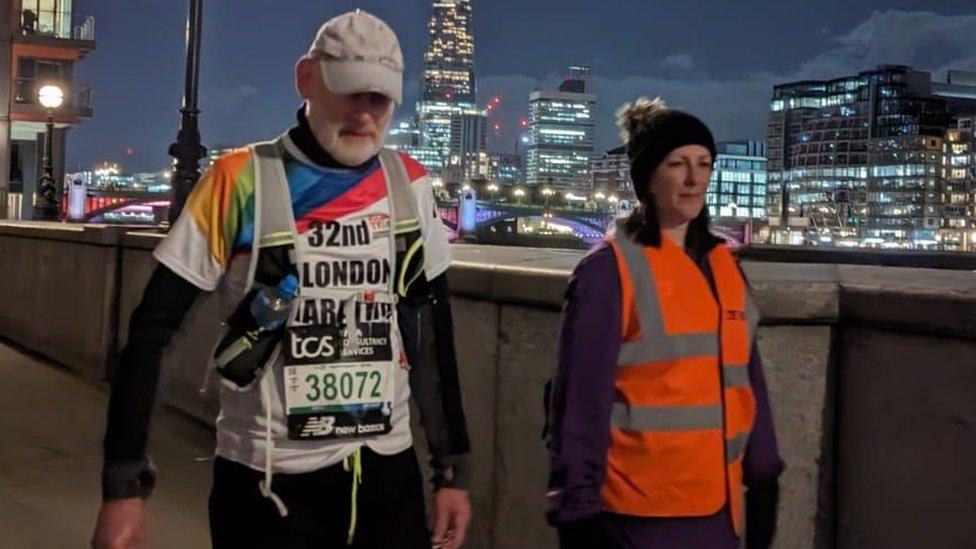
Fred described the support from tailwalkers as incredible
The former police officer runs the marathon every year for Rainbow Trust Children's Charity, external, which supports families who have a child with a life-threatening or terminal illness, in memory of his daughter Claire, who died just before her 15th birthday.
"Running 26 miles is absolutely nothing compared to what these children go through. They don't have a choice so it was never an option for me to quit. I'm proud to say I've come last because next year I can only improve on that," he said.
Fred finished at St James's Park, rather than The Mall, where there is an alternative finish line for participants who take longer than eight hours.
Fred Tomlinson crosses the alternative finish line with support from the team of tailwalkers
Shone Surendran managed to get across the official finish line just before they closed it at 19:30 BST, after he was slowed down by five bouts of cramp.
"The tailwalkers really held my hand through the last bit, which was an absolute nightmare," he says. "I'm immensely grateful, they are the marathon angels to me."
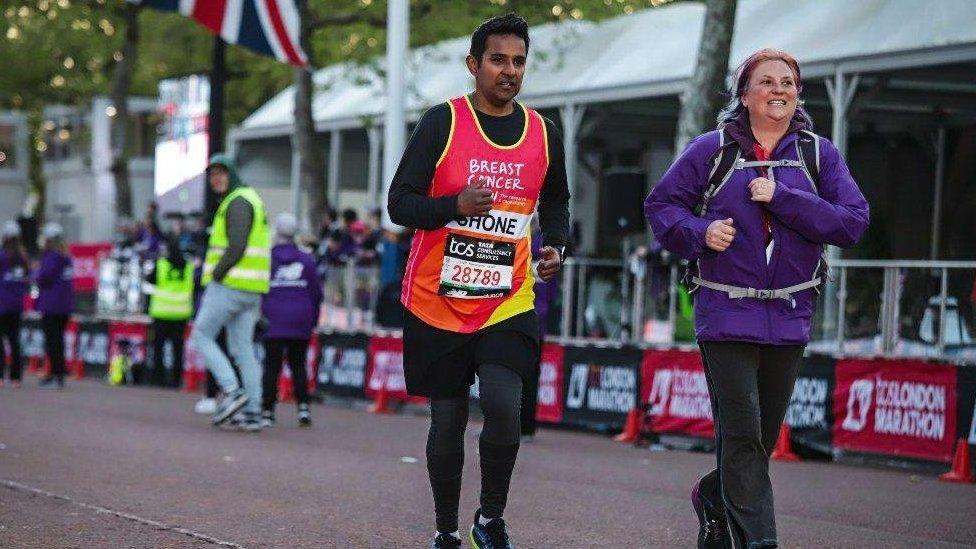
Shone with tailwalker Sarah Millington, who supported him to the finish line
As soon as participants drop behind the eight-hour pace, they get allocated help from the team of 100 or so tailwalkers who accompany them on to the pavements due to the roads reopening, and guide them to the finish line.
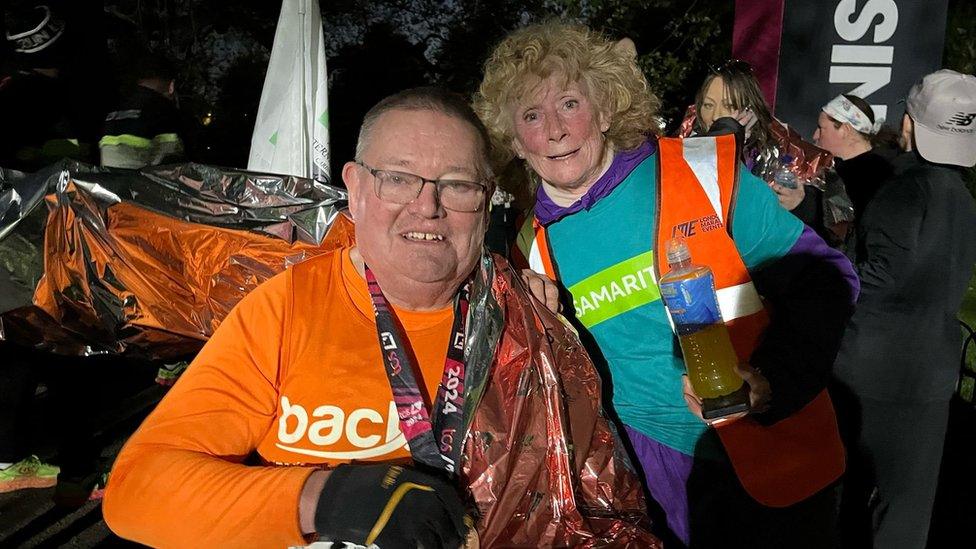
Volunteer Fiona, who is also a Samaritan, supported two participants, including Alan, who took part in his wheelchair
Sean O'Sullivan, 52, was one of the volunteers who supported Fred by keeping morale high and providing snacks and drinks.
"Fred was an absolute inspiration, sharing why he continues to run the marathon, and doing everything with sharp wit, generosity to well-wishers and more grit and determination than I've ever seen at a marathon," he says.
Tailwalkers were introduced in 2021 after the 2019 race was criticised over support offered to slower runners.
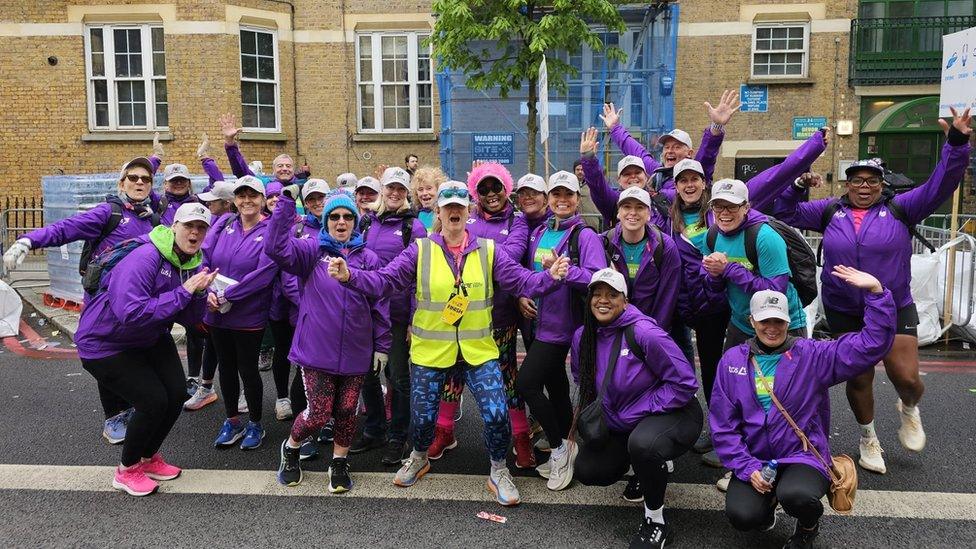
Jo Gennari, centre in the high vis, was instrumental in setting up the group
Jo Gennari, who works for the NHS, was instrumental in setting up the group, after experiencing the "horrific" marathon in 2019, when she was a pacer for slower runners who got heckled by contractors.
"That was a surprise for the organisers and they have worked so hard since then to get it right for the back of the pack. I really think other marathons around the world should try and emulate this because it makes it so inclusive and inspiring for slower runners," she said.
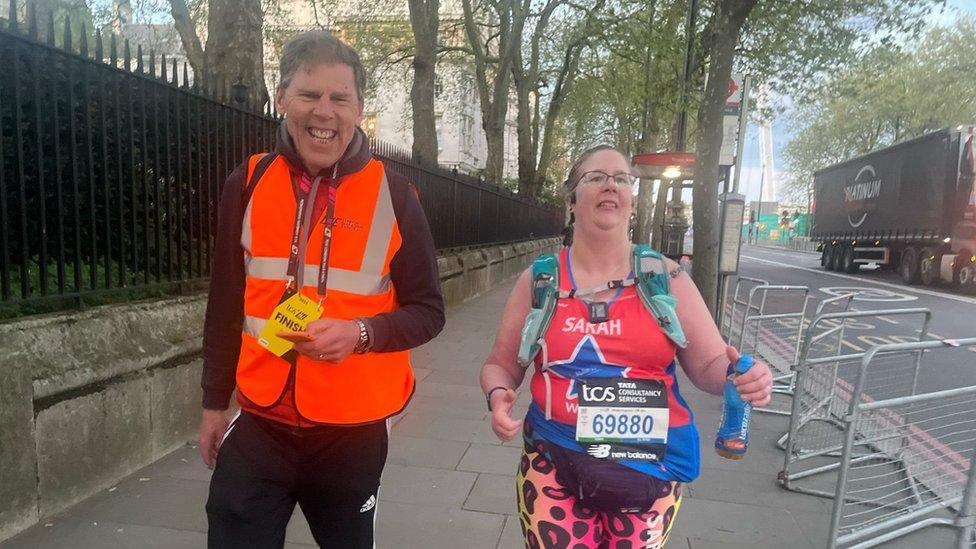
Tailwalker Tim supported Sarah who got injured near the start of the race but carried on going
Tim Norman, 59, from Barton-le-Clay in Bedfordshire, who volunteers for The Samaritans, was one of a team of around 50 tailwalkers from the charity, which was the marathon's charity of the year, external. It was the first time a charity had provided tailwalkers.
Tim says it was a privilege being there for the participants and encouraging them to get to the finish line.
"For me, they represent the best in humanity and are equally, if not more, worthy, of their medal as their elite athlete counterparts who finished half a day before," he said.

My experience of supporting the back of the pack - BBC journalist Charlie Jones
I travelled to London from where I live in Manningtree in Essex, excited to be part of the marathon, which I have run twice before.
At mile 12 I was asked to help a woman called Terri Sarno, from Cheshunt in Hertfordshire, who had fallen behind the eight-hour pace.
She had been trying to help another runner who was injured, which had slowed Terri down. Terri had a stroke 18 months ago and had to learn to walk again.
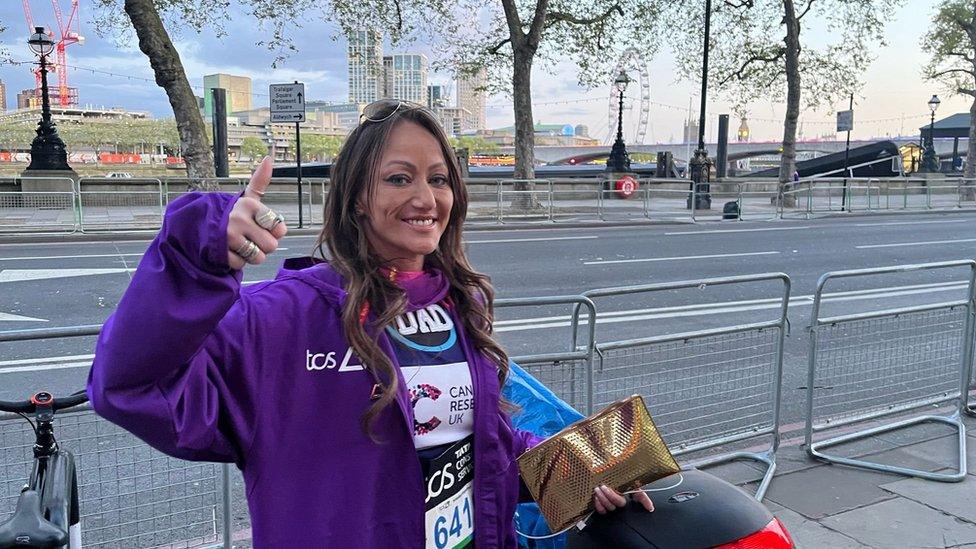
Terri took 9.5 hours to finish the marathon after supporting an injured runner
I guided her on to the pavement and through the streets as workers were dismantling the barriers and collecting rubbish. Towards the end, the route was diverted and I was following signs to the alternative finish line.
Terri did not experience huge crowds of people supporting her, because most spectators had gone home, but she was positive throughout and determined to finish.
Terri, and her son, were worried she wouldn't get a medal and I wanted to reassure her that of course she would and she definitely deserved it.
Hearing her story over the 14 miles we spent together and crossing the finish line holding hands was a real honour.
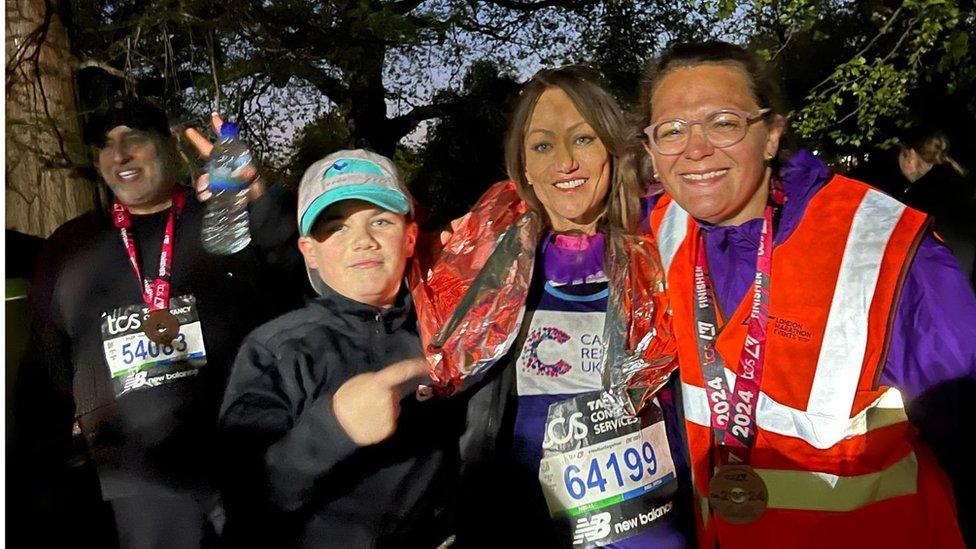
Terri (pictured with her son) gave her medal to BBC Journalist Charlie Jones (right) to wear at the finish line

Shreena Kotecha has spent the last year and a half working with organisers to improve the experience for the slower participants, forming a group called Team Finish Together, external.
She ran the marathon two years ago in about eight hours and was disappointed by the lack of crowds towards the end, so has made it her mission to celebrate the final finishers.
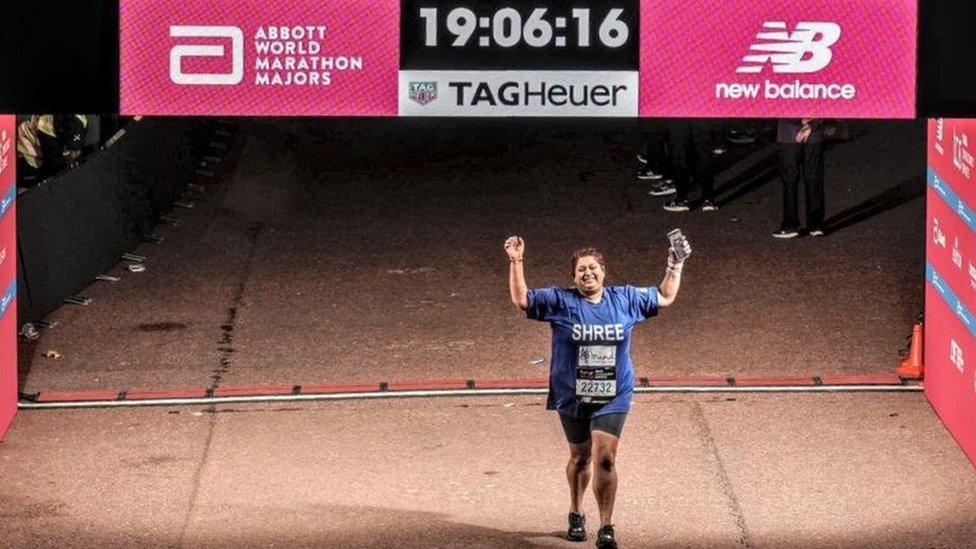
Shreena finished the marathon in just over eight hours two years ago and wanted to improve the support for the back of the pack
"There were no crowds left and the grandstands were empty. The London Marathon staff were amazing and cheered me across the line, but it wasn't the finish I expected and I could not let that happen to anyone else," she says.
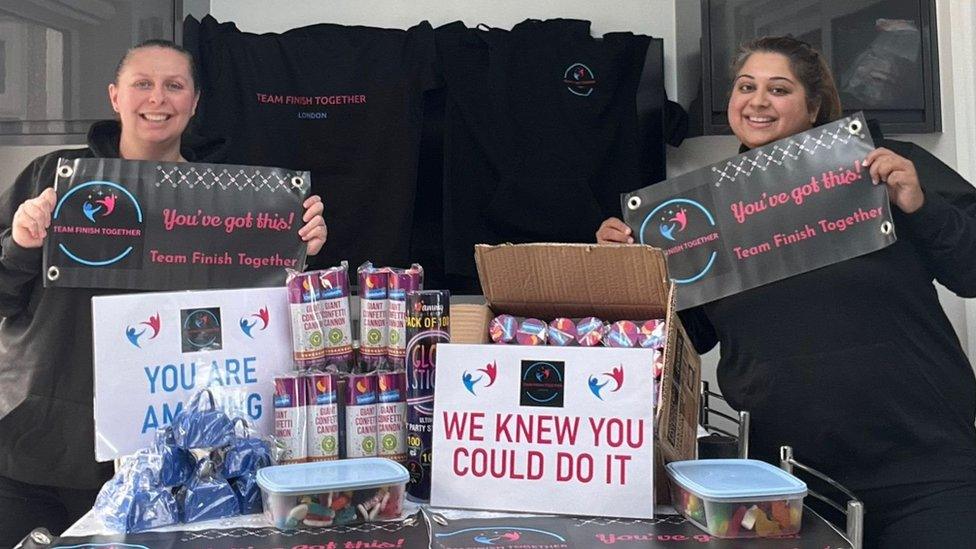
Shreena was determined to make it a party atmosphere for the final finishers, even at midnight
Shreena took music, cowbells, clappers and confetti to St James's Park to make sure it was still a fun atmosphere.
"It becomes a long day for spectators and you can't expect them to stay until after midnight and that's where Team Finish Together come in - we are happy to do that. It means so much to the final finishers to have the support, and they are often the ones who need it the most.
"We need more volunteers to support the unsung heroes. Fred was incredible and it was really important for me and Team Finish Together to be there to celebrate him."

Follow East of England news on Facebook, external, Instagram, external and X, external. Got a story? Email eastofenglandnews@bbc.co.uk, external or WhatsApp 0800 169 1830
- Published22 April 2024
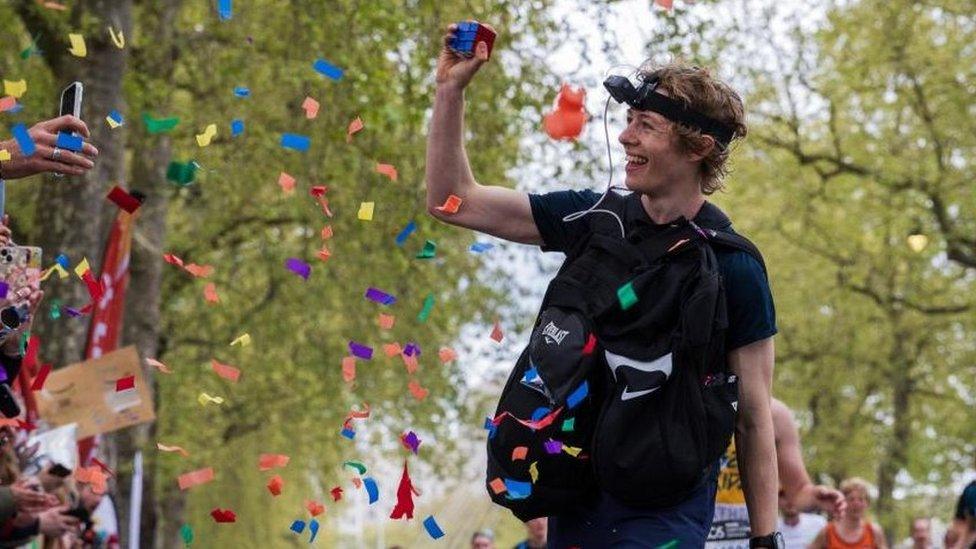
- Published21 April 2024
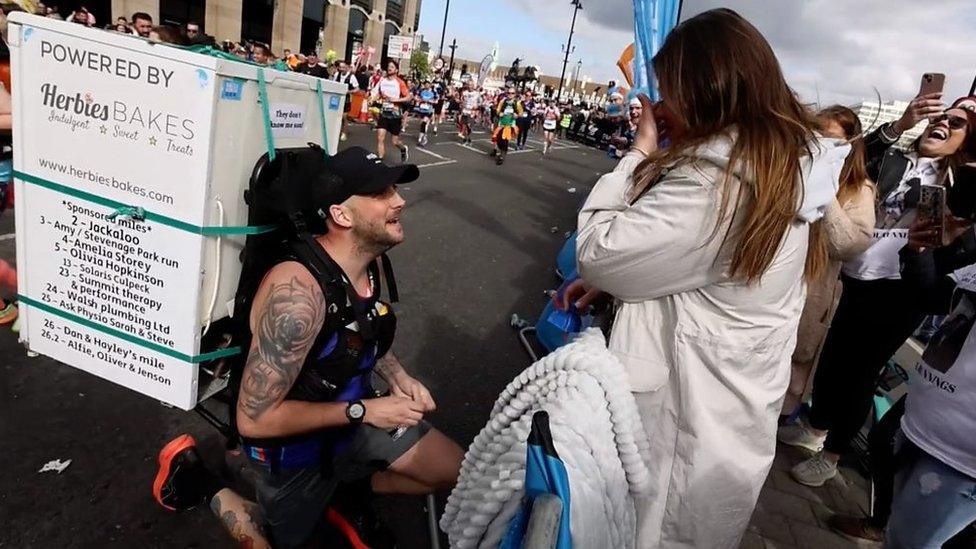
- Attribution
- Published21 April 2024
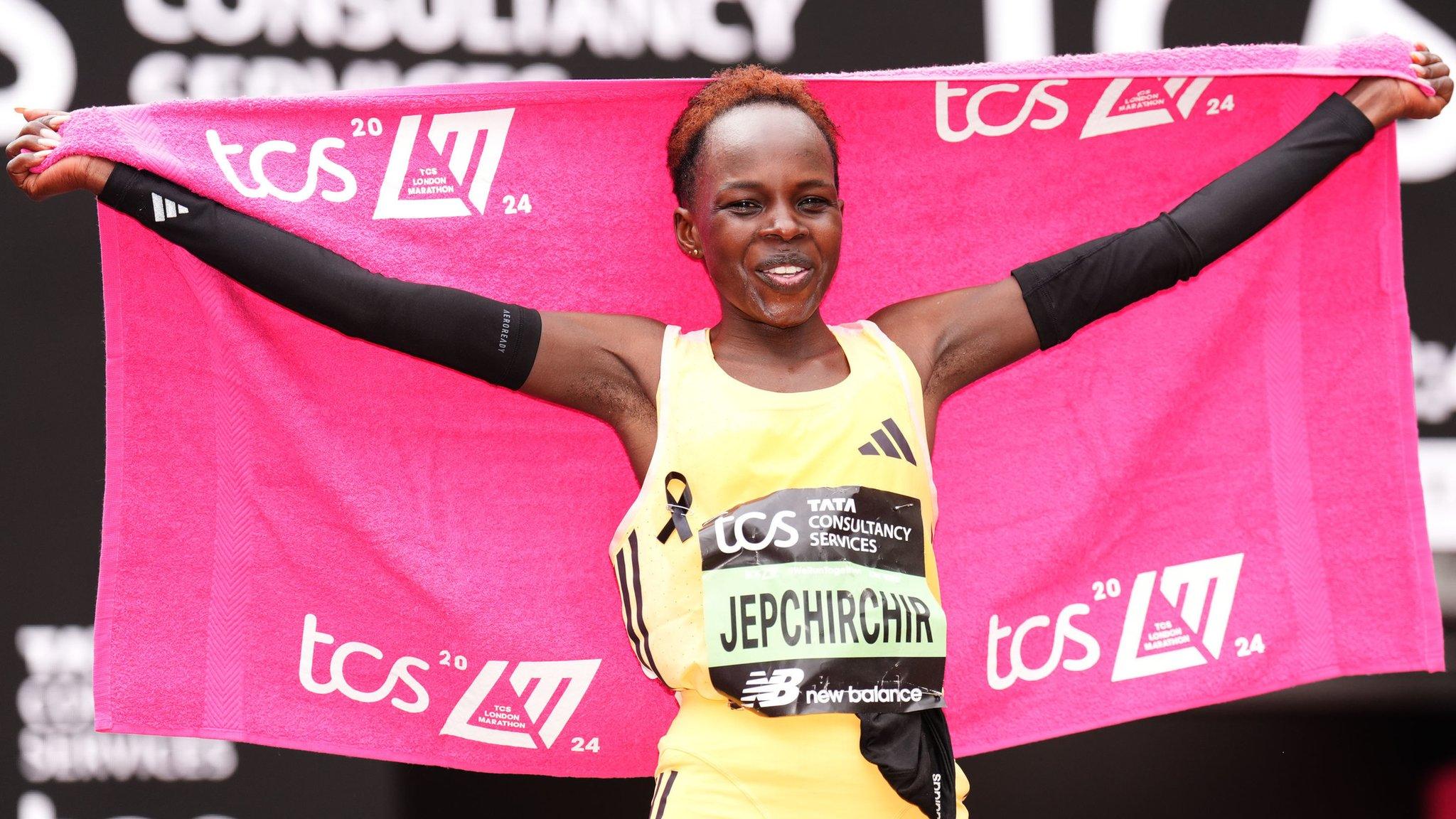
- Published21 April 2024
- Attribution
- Published21 April 2024
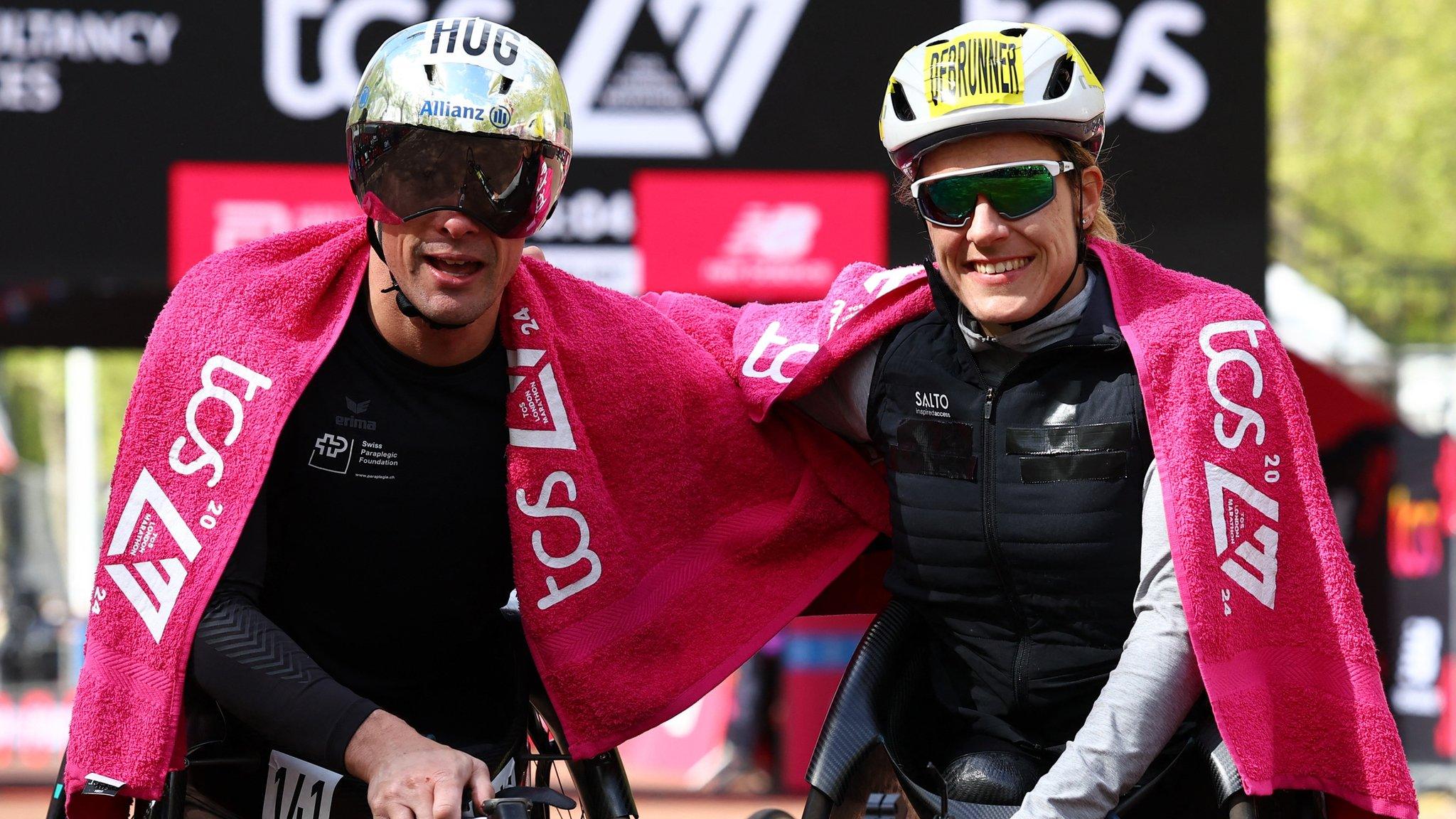
- Published3 May 2019
